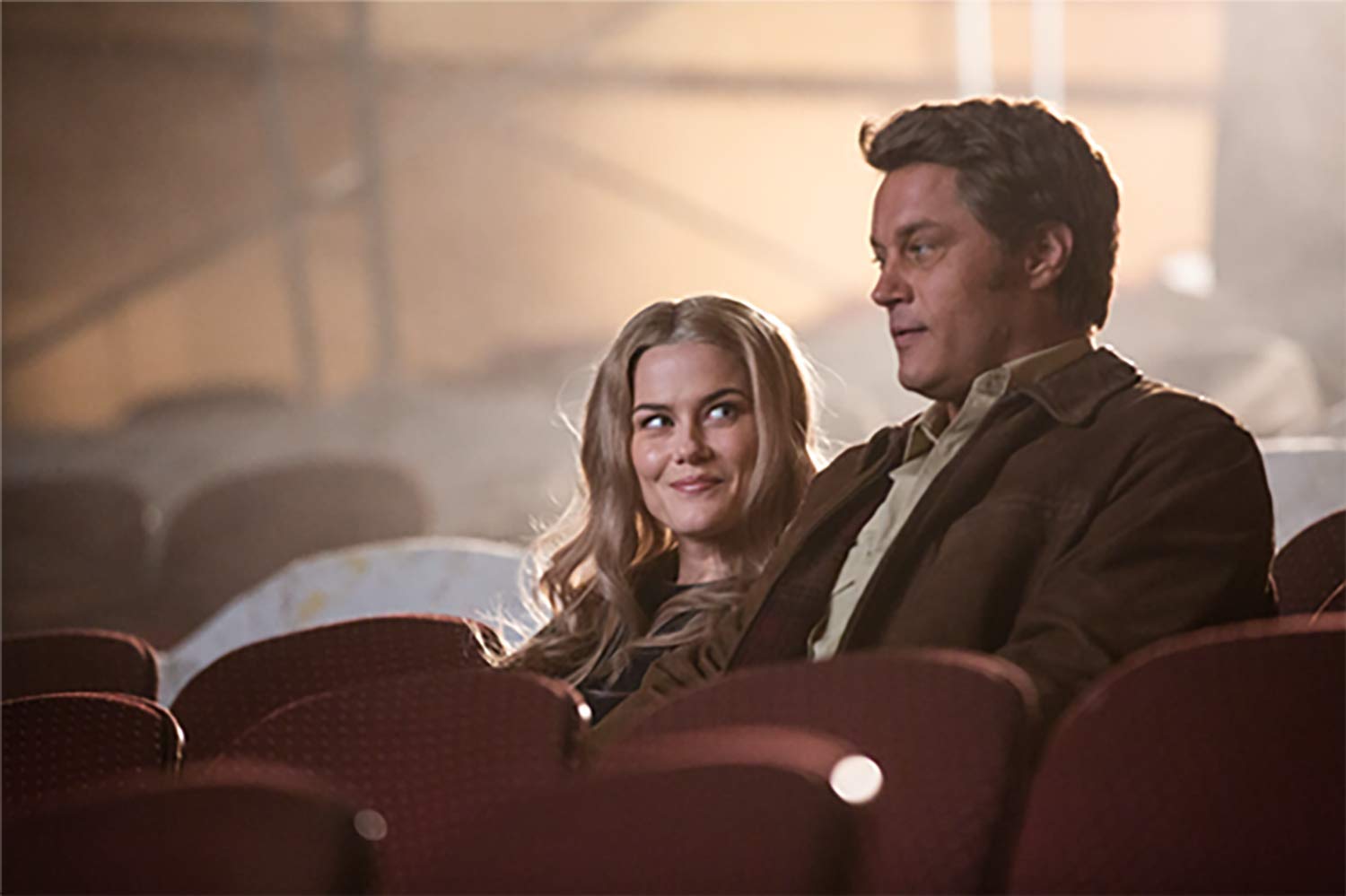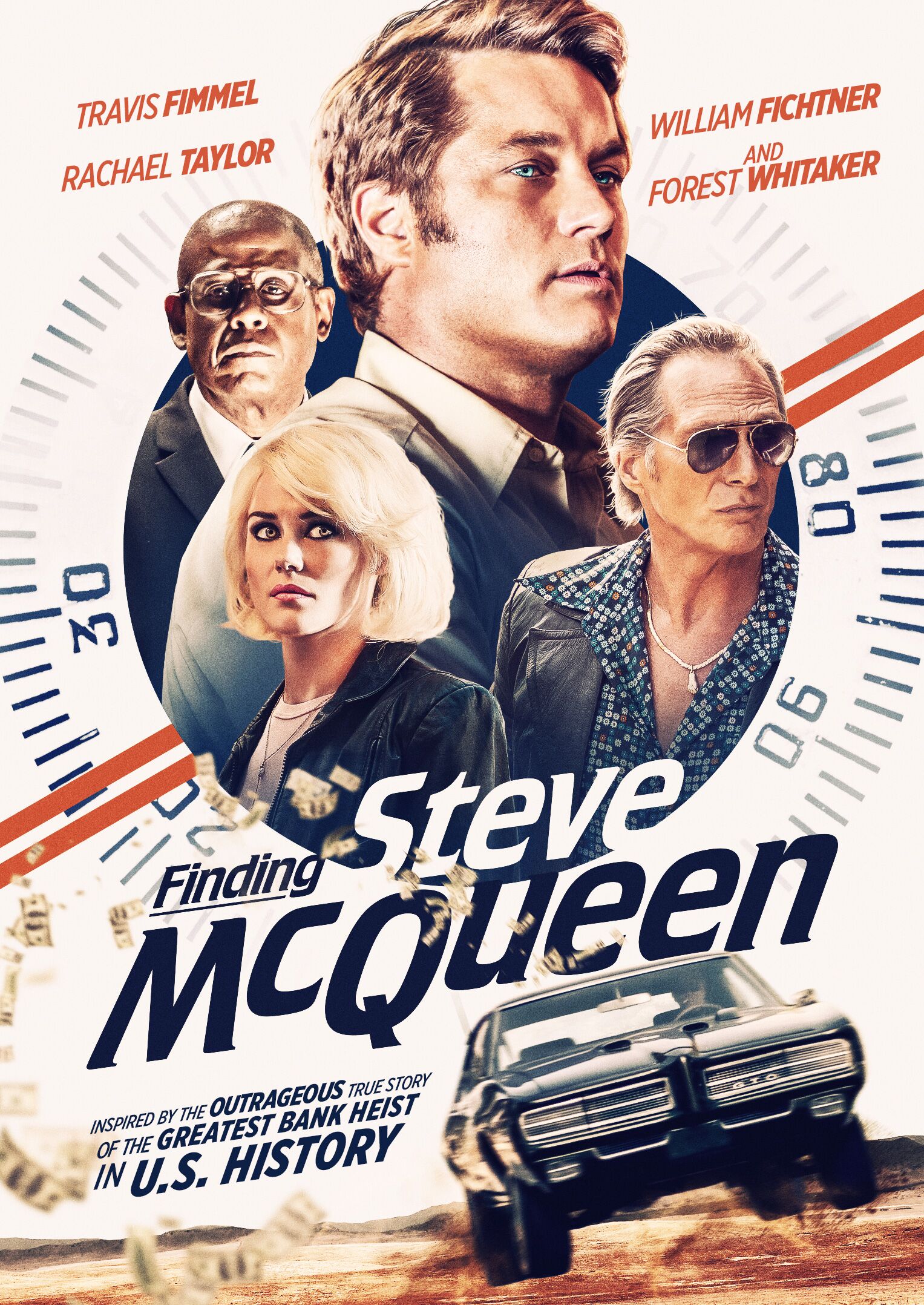
Mark Steven Johnson, Writer of Finding Steve McQueen, on Identity and Layered Characters
From the L.A. Screenwriter collection.
Mark Steven Johnson has written successful stories ranging from Grumpy Old Men to superhero fare such as Daredevil and Ghost Rider. He stepped behind the lens to direct Finding Steve McQueen, the true story of a gang of Ohio bank robbers that attempted to steal $30 million from President Richard Nixon’s secret illegal fund.
L.A. Screenwriter’s John Bucher sat down with Johnson to discuss his body or work and what advice he has for writers.
John Bucher: I’m interested in your fascination with Steve McQueen and how that came to be something that you wanted to involve yourself in from a project level.
Mark Steven Johnson: You know, I’m a huge McQueen fan, but it was really a story about this odd footnote in American history that really hooked me. I really didn’t have any interest in making a heist film. There’s so many heist films and they’ve been done so well and we have a tiny little budget so we can’t really compete with Heat or The Town or any of these greats.
But when I heard about this story—about these bank burglars from Youngstown, Ohio, who decided they wanted to rob the President of United States—I was like, wow, that’s interesting. And to me it was funny. Then there was the idea of doing this love story, of seeing this man on page one sit down at a diner with his girlfriend and say, “I’m not who you think I am.” That’s what hooked me. Those two things.
You have to be realistic about what you can achieve for such a low budget. You’re not going to compete with The Fast and Furious doing car chases. So what can we do? Well, we can be different, we can be funny. That doesn’t cost anything. We can be heartfelt. The more that you read about the true story, the more that you realize that this is stranger than fiction. All the strangest parts of the story are true. The idea that they broke into the same bank three nights in a row, and the fact that they were going after Nixon’s dirty campaign money, and the fact that they got caught because they forgot to run the dishwasher and left their fingerprints everywhere. All true.
Harry Barber met this girl and for eight years lived with her under a fake name, and she was the sheriff’s daughter. And when he got arrested, the whole town wrote letters on his behalf. It’s amazing stuff. So the plethora of good ideas in there—that hooked me. It was much more about that than it was about Steve McQueen himself or doing a heist film. This was about characters.
John Bucher: Let’s talk about Harry Barber as a character. It’s interesting to me that, with your previous work with superheroes, you’re again telling the story of someone with a secret identity.
Mark Steven Johnson: Yeah. That’s a big theme in the film—identity—and you see it. Who we are versus who we want to be always fascinates me. I love underdogs. Grumpy Old Men was about senior citizens falling in love, and they were underdogs. Simon Birch was about a small boy who believes he’s an instrument of God. He was an underdog. My first superhero, Matt Murdock, was a blind lawyer. I love underdogs. I love characters that want to be more than they are.
And when you meet Harry, aka John Baker, who sits down with his girlfriend and says, “I’m not who you think I am,” you look at her, and her hairstyle is Debbie Harry. She’s trying to be someone different. Throughout the movie, you see Molly’s hairstyles change depending on what was popular in the theaters at that time. She goes from Debbie Harry in the 80s, and we go backwards. Then she’s got hair like Allie McGraw in The Getaway. And then later she’s Jane Fonda in Klute.
These guys, the small group of bank burglars, decide they’re going to pull off the biggest robbery in history. They’re way out of their league here. And so that’s a great theme. When you find a great theme like that, you just keep coming back to it. That ties it all together. That’s what got me excited.

John Bucher: Speaking of great characters in the film, Howard Lambert is a really fascinating character. Obviously you’ve got great talent like Forest Whitaker bringing him to life. But can you talk about the role of Howard Lambert in this story?
Mark Steven Johnson: He’s someone who was the first black detective, the first black agent within the FBI. I love when you’re watching a movie and you’ve got your good guys and your bad guys, you think, and then things begin to change a bit and you’re like, wait a minute …
I like Lambert. I like that character. And he’s going through a divorce. He’s having a hard time. He deserves a break. He should get a promotion, but he keeps getting passed over. I want to see him catch these guys. But I love these guys too, and so it’s fun.
Peeling back all those layers of the onion is what makes it so interesting and watchable. Because it’s easy to say these guys are like Robin Hood, they’re lovable, bungling characters and they make us laugh, and that’s all true. But then they start to pull off the heist. There’s a moment where Ray pulls out a gun and he starts loading up. And you see the look on Harry’s face like, whoa, I didn’t sign up for this. I don’t want anyone to get hurt. I thought this was going to be fun, like in the movies, and shit gets real.
It’s fun being able to juggle all these characters and also incredibly challenging, as you can imagine, because there’s at least five different timelines going on in the movie, which, I didn’t write the script, I rewrote the script. The first version that Keith Sharon wrote based on his articles in the Orange County Register was very linear. It was more of a straight ahead heist film, called The Youngstown Boys. And then Ken Hixon came along, and he is the one who started changing the timeline around, which is what I loved. But it also made things incredibly difficult. It’s a real challenge as a filmmaker to keep reminding people through palette, music, hairstyles, what year it is without having to constantly put slugs on screen.
John Bucher: What advice would you offer to writers who are trying to come up with interesting heroes? To bring those to life on the page and on the screen?
Mark Steven Johnson: I know it’s a cliché, but I’m going to be clear about this because I think it’s too cut and dry sometimes when people say, “write what you know.” I remember hearing that and thinking, well, I don’t know anything. I’m from a small town in Minnesota. I’ve never been to war. I was a kid. I was 25 when I wrote Grumpy Old Men. But then I thought, okay, what do I know? I know Minnesota, it’s where I’m from. I know this old guy, he’s like my grandfather. And then I just started building on that and I wrote that script.
It wasn’t exciting or interesting at first, but it was a point of view that was so specific. And that’s what I would say. I would say, when people say “write what you know,” it doesn’t mean you have to write about the fact that you work at Starbucks and your girlfriend’s name is Karen. It’s your point of view that makes you stand out from everyone else. And for me and Grumpy Old Men, people would read it and go, this is hilarious. This isn’t real, right? People don’t really cut holes in the ice and slip out there. And I’m like, yeah, by the thousands. That’s how I grew up. They thought I was making it up. I had so many people say to me, this is really funny, Mark, but it’s about senior citizens in Minnesota. This movie’s never getting made.
It became a movie that changed everything for me. So you just, you never know. And I know that you’ve put this on your site before, too, but I would say the simplest advice would be write what you know, put yourself into it. Have a specific point of view that people haven’t heard before.
And then, that first ten pages … It really is true. I’ve read a lot of scripts and I’ve read so many where, oh no, it doesn’t get good until around page 40. I’m like, I’m not getting to page 40. I got shit to do. When you read a great script and those first few pages are great, I’m in. It’s got to have a specific voice that ropes you in. That’s what it takes. You can’t expect them to get past that.
*Feature Photo: Travis Fimmel and Rachael Taylor in Finding Steve McQueen / Momentum Pictures (2019)

